Spring is still right on course.
OP: “Reason Triangle” by Quadrangle
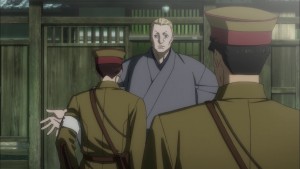 When I look a step-back look at a new anime season, I kind of see it as a new house build. Certain series are shingles, or skylights, built-in bookshelves. It’s great if they turn out well and they really add something to the product as a whole, but it’s not a tragedy if you run into a problem. But every season has shows that are supporting walls – ones which must be there to hold up the superstructure, or you’re screwed. The better seasons have several of them, the weak seasons only one or two – and if that‘s the case and one of those crumbles because the contractor sneaked in cheap materials or slept on the job, you’re seriously rogered.
When I look a step-back look at a new anime season, I kind of see it as a new house build. Certain series are shingles, or skylights, built-in bookshelves. It’s great if they turn out well and they really add something to the product as a whole, but it’s not a tragedy if you run into a problem. But every season has shows that are supporting walls – ones which must be there to hold up the superstructure, or you’re screwed. The better seasons have several of them, the weak seasons only one or two – and if that‘s the case and one of those crumbles because the contractor sneaked in cheap materials or slept on the job, you’re seriously rogered.
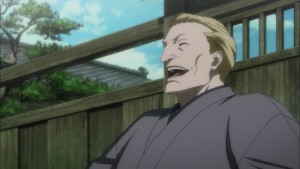 Spring 2016 is one of those seasons that has a little wiggle room, but still – when it’s time to test the strength of one of those load-bearing series you really don’t want any unpleasant surprises. Thankfully we’re two for two – Boku no Hero Academia got its start just right, and Joker Game has followed suit. I said in my preview post that this might just be the best premise of the season, and I see nothing so far to make me doubt that assessment. That doesn’t mean it’s going to end up as the best series, but it certainly has a chance – especially with this staff behind it.
Spring 2016 is one of those seasons that has a little wiggle room, but still – when it’s time to test the strength of one of those load-bearing series you really don’t want any unpleasant surprises. Thankfully we’re two for two – Boku no Hero Academia got its start just right, and Joker Game has followed suit. I said in my preview post that this might just be the best premise of the season, and I see nothing so far to make me doubt that assessment. That doesn’t mean it’s going to end up as the best series, but it certainly has a chance – especially with this staff behind it.
 The pedigree here is rock solid. Director Nomura Kazuya helmed the likes of the vastly underrated Robotics;Notes and worked on a laundry list of great series at Production I.G., Bones and Madhouse. Writer Kishimoto Taku is fresh off Boku Dake ga Inai Machi, and the music is by the incomparable Kawai Kenji. And the source material? It’s a series of mystery novels by Yanagi Kouji that’s won numerous literary awards, and already inspired a live-action film. And of course I.G. is a glamour studio like Bones and Madhouse, though not one with as consistent a sensibility from series to series. And their work over the past couple of years hasn’t been their best. But in Joker Game they seem to have a project that’s right in their wheelhouse – seinen, historical, gritty and very smart.
The pedigree here is rock solid. Director Nomura Kazuya helmed the likes of the vastly underrated Robotics;Notes and worked on a laundry list of great series at Production I.G., Bones and Madhouse. Writer Kishimoto Taku is fresh off Boku Dake ga Inai Machi, and the music is by the incomparable Kawai Kenji. And the source material? It’s a series of mystery novels by Yanagi Kouji that’s won numerous literary awards, and already inspired a live-action film. And of course I.G. is a glamour studio like Bones and Madhouse, though not one with as consistent a sensibility from series to series. And their work over the past couple of years hasn’t been their best. But in Joker Game they seem to have a project that’s right in their wheelhouse – seinen, historical, gritty and very smart.
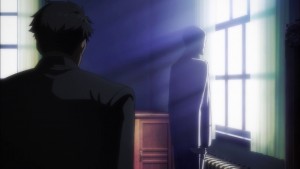 Joker Game is the exactly the sort of series that, once upon a time, would have been perfectly at-home on NoitaminA. There are no teenagers in sight here, no music clubs or alternate fantasy worlds to transport to. The place is of course Japan, and the time is the late 1930’s – a time, of course, when the nation was in the clutches of the Imperial armed forces and being inundated by its pro-war propaganda machine. In this setting we have a school for spies – the “D Agency“, a training ground for those who would lie, cheat and steal information for the welfare of a nation at war.
Joker Game is the exactly the sort of series that, once upon a time, would have been perfectly at-home on NoitaminA. There are no teenagers in sight here, no music clubs or alternate fantasy worlds to transport to. The place is of course Japan, and the time is the late 1930’s – a time, of course, when the nation was in the clutches of the Imperial armed forces and being inundated by its pro-war propaganda machine. In this setting we have a school for spies – the “D Agency“, a training ground for those who would lie, cheat and steal information for the welfare of a nation at war.
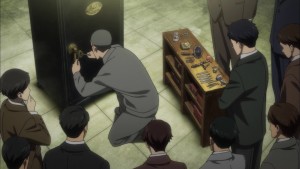 In a nation that’s never been at ease with its wartime history this premise would always be an uncomfortable one, and that’s especially true with the Abe government intent on tearing up Japan’s pacifist constitution and fanning the flames of nationalism. But that things are not all they seem here is obvious almost from the beginning – the leader of the D Agency, Col. Yuuki (Horiuchi Kenyuu) seems to have a rather jaundiced and cynical view of the military leadership. And none of the “students” have come out of the military – they’re all graduates of civilian colleges, which is especially disturbing to the one straight arrow in the quiver, the very military indeed Lt. Sakuma (Seki Tomokazu).
In a nation that’s never been at ease with its wartime history this premise would always be an uncomfortable one, and that’s especially true with the Abe government intent on tearing up Japan’s pacifist constitution and fanning the flames of nationalism. But that things are not all they seem here is obvious almost from the beginning – the leader of the D Agency, Col. Yuuki (Horiuchi Kenyuu) seems to have a rather jaundiced and cynical view of the military leadership. And none of the “students” have come out of the military – they’re all graduates of civilian colleges, which is especially disturbing to the one straight arrow in the quiver, the very military indeed Lt. Sakuma (Seki Tomokazu).
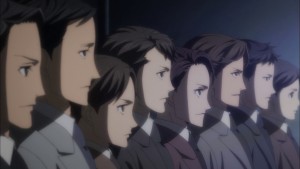 This first episode doesn’t give away too many details, so I’ll defer to Nomura and Kishimoto and let them reveal them at their own pace. But certain things are pretty clear, even in a first episode that’s more about establishing setting and tone than anything else. The key scene of course, is the “joker game” – the poker game that’s really much more than a poker game. The D Academy students use it as an exercise in lying and betrayal – it’s all about who’s side everyone is one, and how good you are at figuring it out. The ringleader is a young man named Miyoshi (somewhat oddly, Shimono Hiro) and the victim is Sakuma, who has no idea what’s actually happening here. This seems to be a sort of hazing for him, but it’s actually education – in the world he’s entering, no one can be trusted and things are never going to be what they seem to be.
This first episode doesn’t give away too many details, so I’ll defer to Nomura and Kishimoto and let them reveal them at their own pace. But certain things are pretty clear, even in a first episode that’s more about establishing setting and tone than anything else. The key scene of course, is the “joker game” – the poker game that’s really much more than a poker game. The D Academy students use it as an exercise in lying and betrayal – it’s all about who’s side everyone is one, and how good you are at figuring it out. The ringleader is a young man named Miyoshi (somewhat oddly, Shimono Hiro) and the victim is Sakuma, who has no idea what’s actually happening here. This seems to be a sort of hazing for him, but it’s actually education – in the world he’s entering, no one can be trusted and things are never going to be what they seem to be.
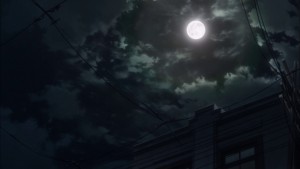 There’s a classic clash of cultures going on here, with Sakuma having been trained to believe what he’s been told and Yuuki and his boys living on the principle that everything – including orders – must be questioned. Sakuma, in fact, may be an unwitting spy himself, sent in to figure out what’s happening with this mysterious spy cadre that isn’t producing any intelligence. When the man who sent him, Col. Mutou (Genda Tesshou) orders Sakuma to have the D Agency find proof that an American businessman is a spy, Col. Yuuki sees through the ploy at once. He breaks down all of Sakuma’s linear thinking – “once a spy is suspected, he’s finished. Arresting him is like capturing a crippled soldier in battle.” And when Sakuma responds to Yuuki’s question of what he’d do if he was discovered by saying he’d kill whoever discovered him or failing that himself, Yuuki ruthlessly points out that either would be the worst thing for a spy to do – because the death of someone who’s supposed to blend in to normal society would obviously attract the interest of the police (and worse).
There’s a classic clash of cultures going on here, with Sakuma having been trained to believe what he’s been told and Yuuki and his boys living on the principle that everything – including orders – must be questioned. Sakuma, in fact, may be an unwitting spy himself, sent in to figure out what’s happening with this mysterious spy cadre that isn’t producing any intelligence. When the man who sent him, Col. Mutou (Genda Tesshou) orders Sakuma to have the D Agency find proof that an American businessman is a spy, Col. Yuuki sees through the ploy at once. He breaks down all of Sakuma’s linear thinking – “once a spy is suspected, he’s finished. Arresting him is like capturing a crippled soldier in battle.” And when Sakuma responds to Yuuki’s question of what he’d do if he was discovered by saying he’d kill whoever discovered him or failing that himself, Yuuki ruthlessly points out that either would be the worst thing for a spy to do – because the death of someone who’s supposed to blend in to normal society would obviously attract the interest of the police (and worse).
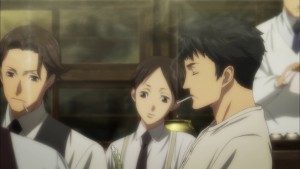 Joker Game is definitely not a light entertainment. This is the sort of show that assumes the audience is paying attention, because the whole premise is built around the concept of truths that are obscured by lies. It’s a series about characters learning to use their intellect to question everything they’re told, to figure out who’s on whose side. As such, it’s going to demand a lot from the viewer, which in turn means it’s not really trying for commercial success. I think, freed of that burden from the beginning, Joker Game has a chance to take anime to places it very rarely goes – both in terms of the density of the writing and the political statement it’s trying to make. It’s one of those “art for art’s sake” series that have been something of a signature for Production I.G. over the years, and it’s gratifying to see that there’s still both the incentive and the wherewithal to produce a show like that.
Joker Game is definitely not a light entertainment. This is the sort of show that assumes the audience is paying attention, because the whole premise is built around the concept of truths that are obscured by lies. It’s a series about characters learning to use their intellect to question everything they’re told, to figure out who’s on whose side. As such, it’s going to demand a lot from the viewer, which in turn means it’s not really trying for commercial success. I think, freed of that burden from the beginning, Joker Game has a chance to take anime to places it very rarely goes – both in terms of the density of the writing and the political statement it’s trying to make. It’s one of those “art for art’s sake” series that have been something of a signature for Production I.G. over the years, and it’s gratifying to see that there’s still both the incentive and the wherewithal to produce a show like that.
ED: “Double” by Magic of Life


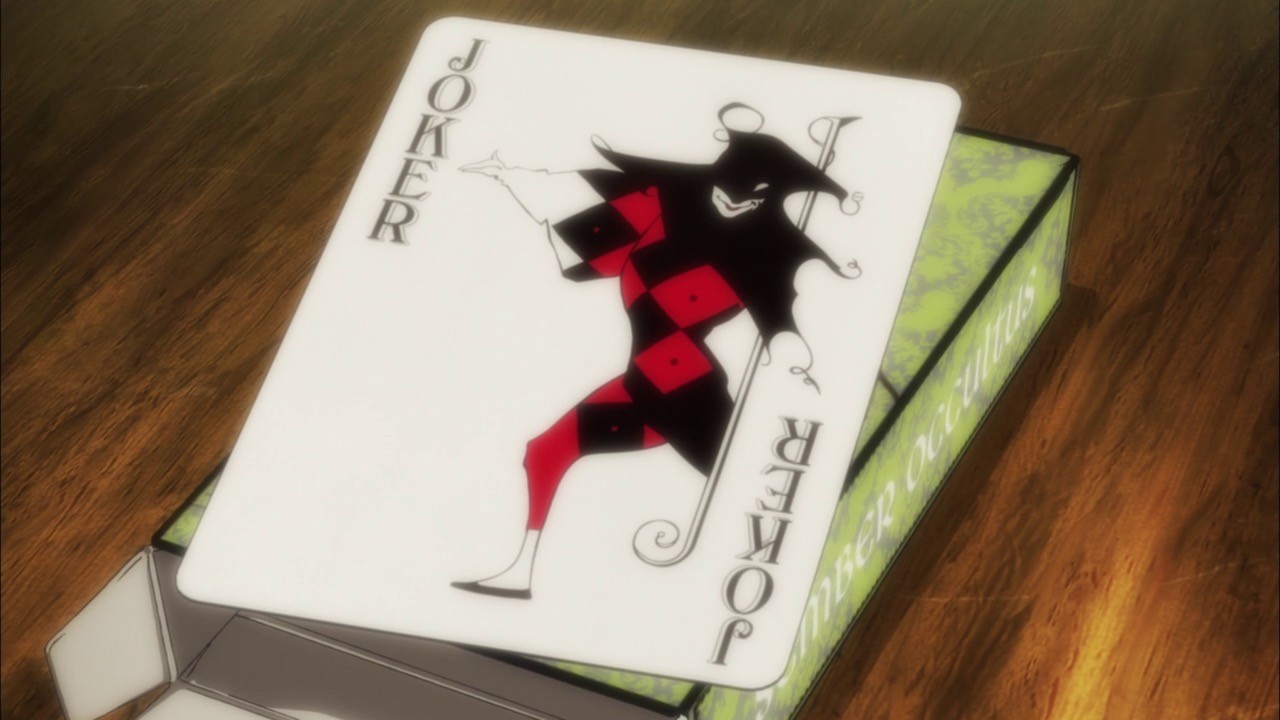
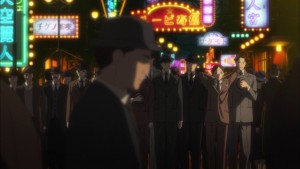
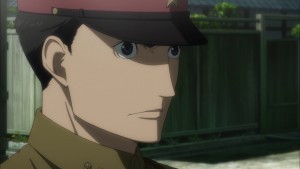
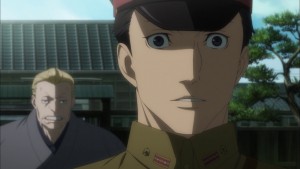
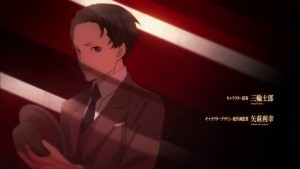
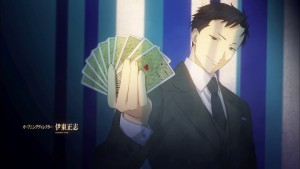
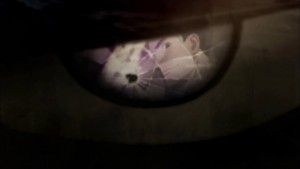
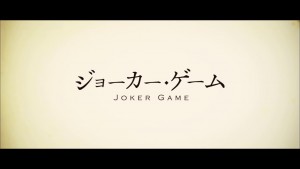
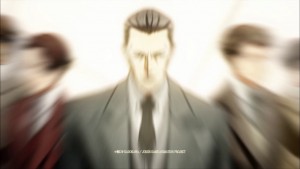
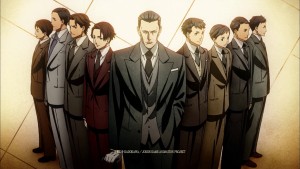
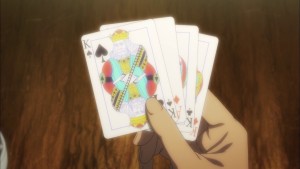
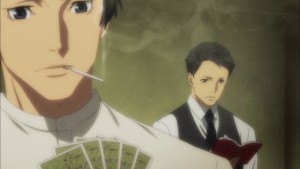
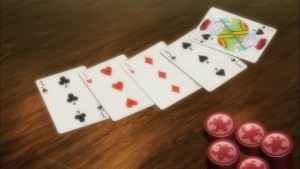
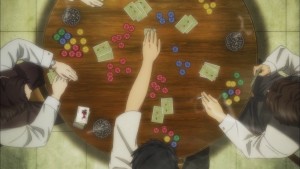
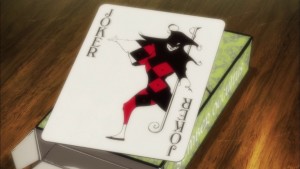
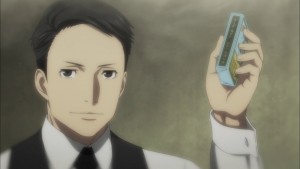
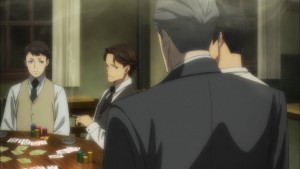
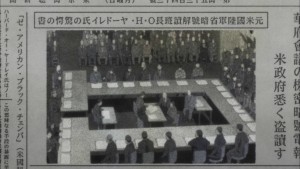
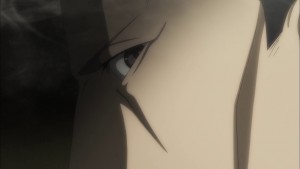
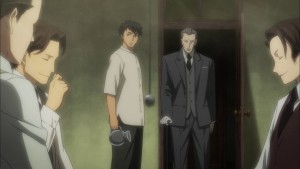
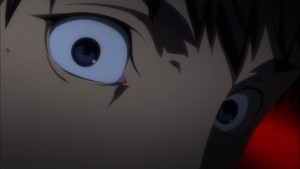
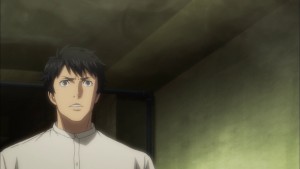
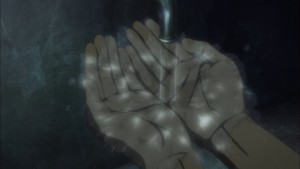
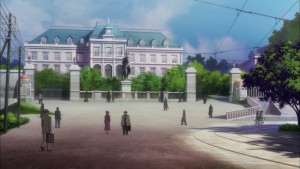
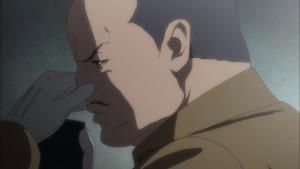
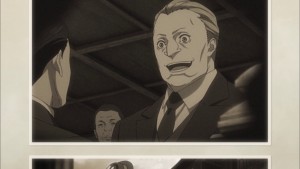
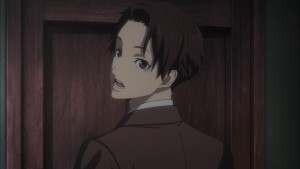
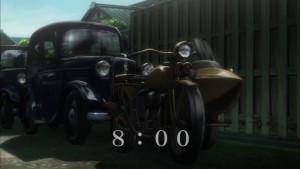
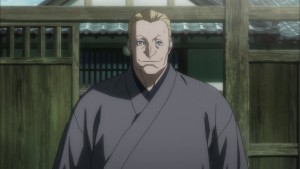
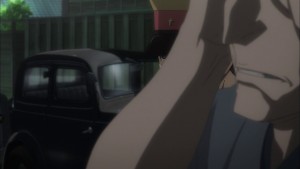
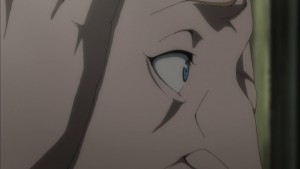
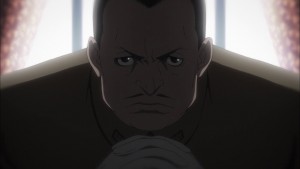
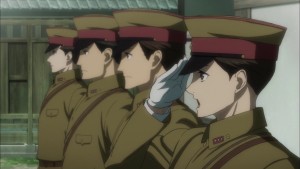
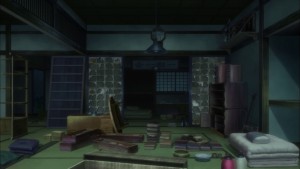
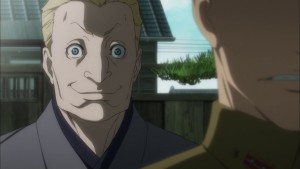
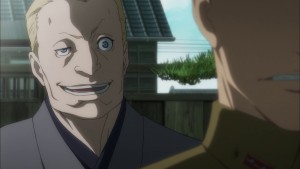
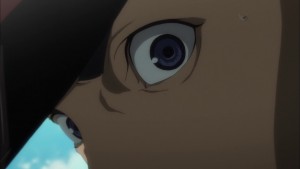
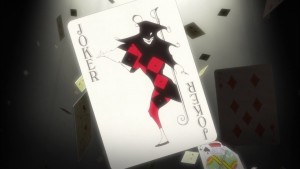
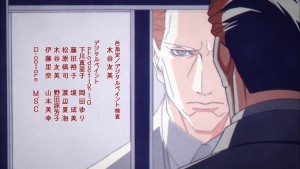
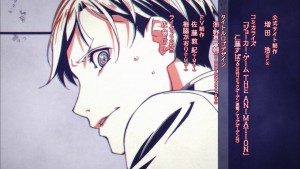
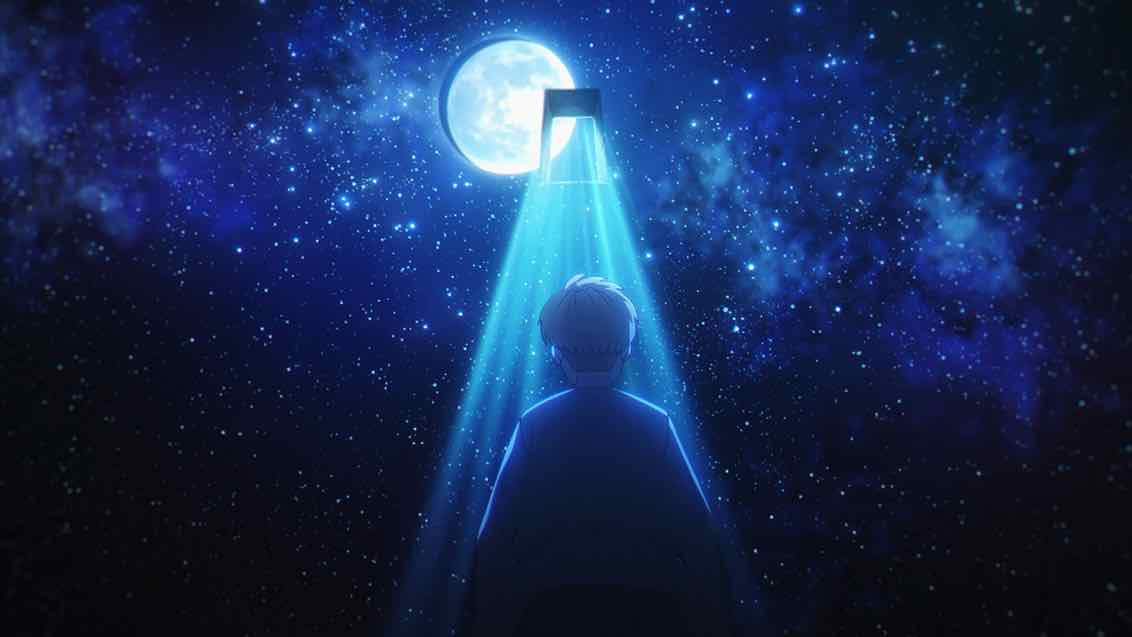

Jonny M
April 5, 2016 at 9:39 pmI agree with pretty much everything you said – huge potential with this one. The premiere pretty much hit every note it had to and this is a very stylish and well-produced series. We’ll have to see how it turns out (They’re really playing with fire with the premise, but this episode mostly allayed the fears I had going in), but between this and My Hero Academia this season’s off to a great start.
say
April 6, 2016 at 12:53 pmInstriguing! Indeed, I have a weakness for historical settings…
Earthling Zing
April 7, 2016 at 6:04 amIn an era of spy movies being so commonplace I’m amazed an anime series managed to mine something fresh out of it.
Gina
April 11, 2016 at 8:44 amIn american spy flicks we see more action, but this show sets a new light – when you’re found out, you’re done. Making a deal is more important than killing pointlessly. I found this very intriguing and in spite of the heavy narrative, it is once of those times where I find it a good thing. This episode hits all the right notes in setting up the mood (the smoke drafts during the poker game scene was so oddly mesmerizing) and the dialogue is clever without feeling dry or oppressive. For some reason, it reminded me of Subete ga F, but unlike with that show, I don’t find myself impatient to know what was coming next.
AOTS for me so far.